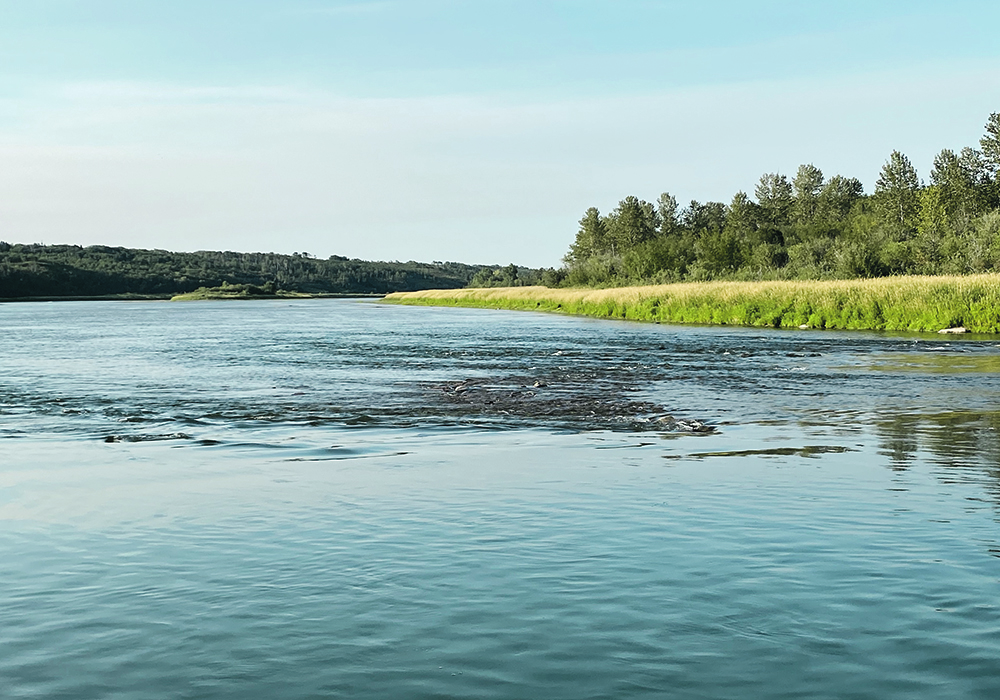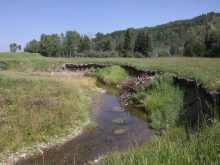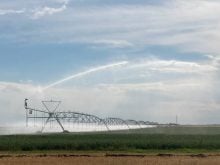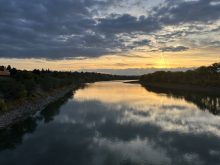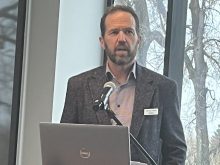Provinces urged to keep control of the resource, but Ottawa has a role in developing water management public policy
Water and how it’s managed will be critical in feeding a growing world, according to the panelists taking part in a Canadian Agri-food Policy Institute webinar.
Based on United Nations estimates, the global population is expected to top nine billion people by 2050, requiring 70 percent more food production. Canada holds one-fifth of the globe’s fresh-water supply and its agricultural sector is poised to pick up the slack.
But the abundance of water in Canada has caused some to take the resource for granted.
“Canada has an embarrassment of riches when it comes to sources of fresh water and water is provided at a very low cost,” said Nicola Crawhall, Canadian Water Network chief executive officer. “As a result, Canadians are water hogs. Collectively we consume the equivalent of 60,000 Olympic-sized swimming pools of water per day.”
Read Also

Canadian Food Inspection Agency red tape changes a first step: agriculture
Farm groups say they’re happy to see action on Canada’s federal regulatory red tape, but there’s still a lot of streamlining left to be done
On a per capita basis, Canada is second in the world behind the United States in the amount of water used, she added.
“By comparison, Europeans only consume about half as much water,” said Crawhall.
Without a cost driver to encourage water reuse and a high availability of the resource, there is little to stop the trend, said Crawhall, who added that potable water is used to clean city streets.
To meet future needs, there must be a discussion around water regulations: how it should be used and what it should be used for, as well as conservation.
Crawhall said the provinces should keep control of the resource, but the federal government has a role in facilitating public policy development in water management.
“That would mean bringing together water irrigation districts, water allocation agencies, big water users in the economy, First Nations and Indigenous water rights holders, municipalities all talking about (the issue),” she said. “We may not have conflicts yet, but we are going to have them with climate change.”
While most of the country has an abundance of water, the dry sagebrush country of southern Alberta is an exception and stands as an example of what can be done to make the most of a scarce resource, said Margo Jarvis Redelback, Alberta Irrigation Districts Association executive director.
About 66 percent of Canada’s irrigated acres are represented in southern Alberta producing potatoes, sugar beets, canola seeds and other high-value specialty crops using a gravity system that incorporates 8,000 kilometres of canals and pipelines.
With irrigated acres representing 4.4 percent of the province’s cultivated land, the irrigation network provides 27 percent of Alberta’s agricultural sales while also supplying 50 municipalities with water along with supporting agri-food processing.
“There is a fairly significant community or societal benefit to the infrastructure being in place here in southern Alberta,” said Redelback.
It’s a system that can deal with the challenges of climate change with more being done to build out the infrastructure to not only conserve water in times of drought but also manage flooding.
And the province continues to do more with the same amount of water with more than 80 percent of irrigators using high efficiency pivots with low pressure nozzles, said Redelback.
“Those farmers are making those investments. They are significant financial investments. One quarter section pivot system that covers and irrigates 155 acres, or 60 hectares, all in is at least $400,000,” said Redelback.
She added there is a limit to how much efficiency can be pulled out of the system.
“The next step is really trying to maximize what the demand is from the crop and looking under the soil and trying to find an efficient and cost-effective way to bring the technology in so you can determine on the micro level how much water in each particular grid on the field needs,” she said.
Contact alex.mccuaig@producer.com


